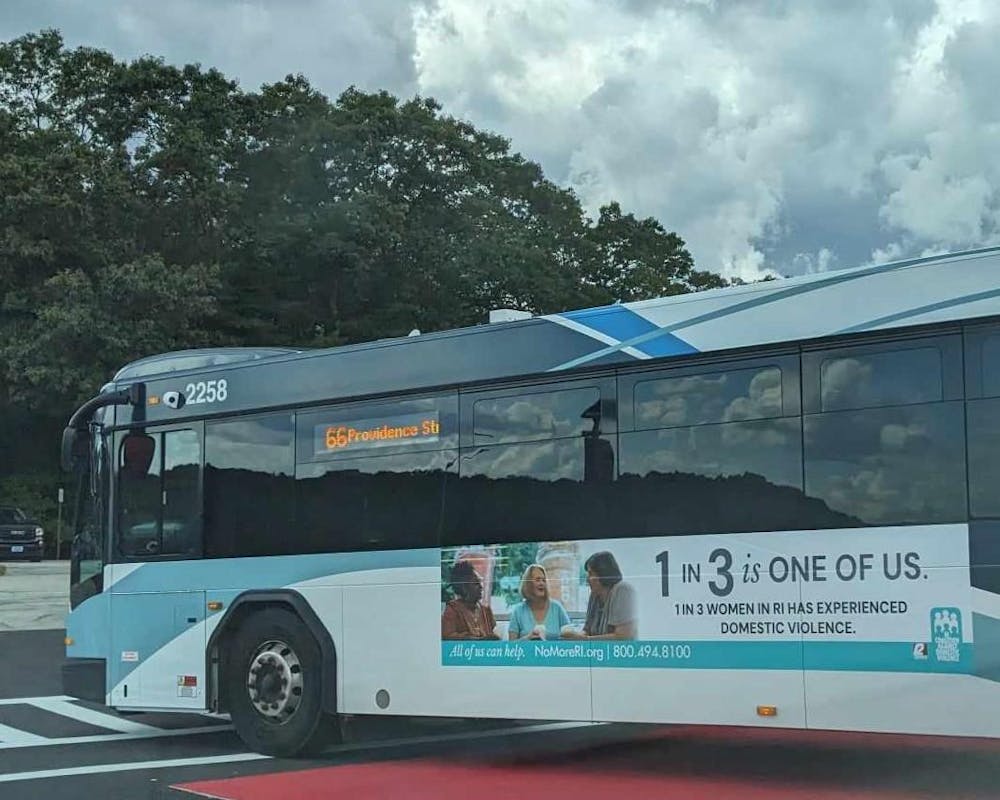Roughly one in three women in Rhode Island have experienced domestic violence in their lifetime, according to data from the Centers for Disease Control and Prevention. That is the alarming statistic the Rhode Island Coalition Against Domestic Violence is working to highlight this October.
“We all know someone … in our social circles that’s going through this,” said Lucy Rios, executive director of RICADV. The coalition’s campaign highlights that women experiencing domestic violence are “One of Us,” Rios explained.
During this Domestic Violence Awareness Month, which runs through the duration of October, RICADV’s campaign has specifically focused on centering the voices of survivors. Cece, one of the survivors and advocates participating in the campaign who did not provide her last name due to safety and privacy concerns, highlighted the importance of building such awareness.
“Speaking about domestic violence creates an opportunity to stop abusive situations before they begin, as well as create a community in which survivors receive actual opportunities to rebuild and feel safe,” Cece wrote in an email to The Herald.
Founded in 1979, RICADV was formed to aid agencies in the state providing emergency and support services to domestic violence survivors, according to its website. Through its member agencies, the coalition has secured a presence in schools, courtrooms and police stations, Rios said.
Cece, who now helps domestic violence survivors access resources, detailed how important it had been for her to connect with a RICADV advocate when her abuser was arrested. While Cece had been in the relationship since high school, it was during college that the relationship turned violent.
“I truly feel that had I not met my advocate, my life would look incredibly different,” she wrote. “The greatest lesson I learned and I now share as an advocate is ‘This was only a chapter in the story that is you.’”
Beyond making sure the campaign is visible across the state — with ads on buses, billboards, social media and radio — RICADV has also established a presence within Brown’s campus. A big part of the campaign, Rios explained, targets young women who are just beginning to encounter their first serious relationships.
“We know that the risk for intimate partner violence is greatest among women who are (between) the ages (of) 18 and 24,” Rios said. “It’s also really important that young people get this information and are aware of the warning signs that someone might be in an abusive relationship.”
On Oct. 18, Professor of Political Science and International and Public Affairs Wendy Schiller will be joined by Rios at the Joukowsky Forum to discuss her new book “Inequality Across State Lines,” which aims to address the “epidemic of domestic violence” across the country and how most public policies have failed to keep women safe.
For Schiller, the event produces a “unique opportunity” for Brown’s “academic research to inform the people who work directly in the field of domestic violence services and prevention, and for researchers to learn from them as well.”
While working on the book, Schiller and her co-author Kaitlin Sidorsky MA’12 PhD’15, associate professor of political science at Ramapo College, quickly learned that “domestic violence is spread across socioeconomic levels, educational levels and ethnic and racial groups.”
“It affects people in all walks of life, and the violence that occurs has a wide impact on family members, the workplace and the public community at large,” Schiller wrote in an email to The Herald.
At the event, Schiller will share some of the policy recommendations she makes in the book, including “informing victims of abuse that there are options for them to be safer and working with social services and law enforcement to reduce the probability of lethal violence.”
RICADV’s annual community advocacy day, which typically occurs in June, has worked to involve University students almost every year, according to Rios, who emphasized the importance of having young people involved in RICADV's campaigns.
“Our decision-makers have to see that young people care about this issue,” she explained.
While this month’s campaign is not attached to a particular policy agenda, Rios said the coalition hopes that increased public visibility of domestic violence will help make addressing the issue a “priority for the state.”
The campaign is also an opportunity to celebrate RICADV’s recent policy achievements. Earlier this year, the Coalition advocated for the passing of the Abusive Litigation Act, which prevents abusers from weaponizing the court system to further harass and traumatize victims. In 2022, they also helped initiate the Address Confidentiality Program, which limits a perpetrator’s access to a victim’s address information as they relocate.
On Oct. 26, RICADV invites community members to join their task force, Sisters Overcoming Abusive Relationships, in a vigil to honor victims and survivors of domestic violence. SOAR works closely with the coalition to advocate for legislation aiming to mitigate experiences of domestic violence and spread awareness about people’s experiences with domestic violence.
“The women of SOAR are the bravest and (most) courageous people that I know,” Rios said.
“Survivors know what they need,” Cece wrote. “Systems need to listen to survivors in order to end domestic violence and to better serve the population.”

Julia Vaz was the managing editor of newsroom and vice president on The Herald's 134th Editorial Board. Previously, she covered environment and crime & justice as a Metro editor. A concentrator in political science and modern culture and media, she loves watching Twilight (as a comedy) and casually dropping the fact she is from Brazil.





